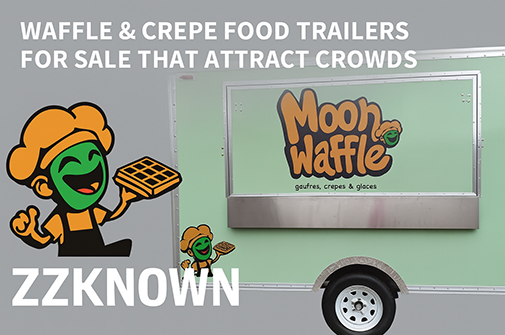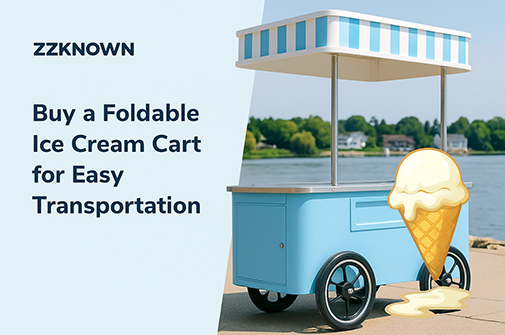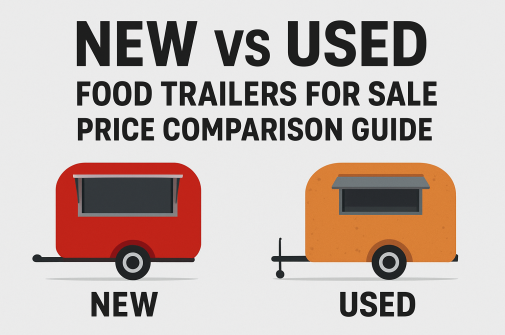In Australia, registering a food truck trailer for road use requires following a series of strict regulations and requirements. These requirements ensure that the food truck trailer meets road safety standards, environmental regulations, and food safety guidelines. Below are the key aspects to consider when registering a food truck trailer in Australia:
In Australia, food truck trailers must be registered and licensed according to the regulations of each state or territory. Different states may have slightly different requirements, but generally, food truck trailers must be registered as roadworthy vehicles and undergo periodic inspections and re-registration.
Registration Requirements: Food truck trailers must be registered with the local transport authority or vehicle registration agency. Typically, you will need to provide proof of purchase, the Vehicle Identification Number (VIN), insurance, and identification of the owner.
Owner Responsibility: The owner of the food truck trailer must ensure the vehicle remains registered and pay any applicable fees. The registration certificate and license plates should be displayed clearly on the trailer.
To ensure that your food truck trailer meets road safety standards, it must undergo a safety inspection. The inspection will typically cover the following elements:
Brake System: The food truck trailer must be equipped with an effective braking system, especially if its total weight exceeds a certain limit.
Lights and Signal System: All lighting and signaling devices must function properly, including tail lights, turn signals, and brake lights.
Tires and Suspension: Tires should be in good condition, and the suspension system must meet safety standards.
Food truck trailers are subject to strict weight and size restrictions, particularly regarding the maximum allowable weight. These limits usually include:
Maximum Total Weight: The total weight of the food truck trailer (including food, equipment, etc.) must fall within the permitted weight range.
Size Restrictions: The width and length of the food truck trailer must comply with local road transportation regulations, generally not exceeding 2.5 meters in width.
Since food truck trailers are involved in food service, they must comply with Australia's food safety regulations and hygiene standards. Here are some key food safety requirements to consider:
Food Storage and Refrigeration: The food truck trailer must be equipped with proper refrigeration to ensure that perishable food items are kept at safe temperatures.
Hygiene Facilities: The trailer must have adequate water supply and drainage systems for cleaning equipment and food preparation. It should also include sanitation facilities like handwashing sinks and disinfecting stations.
Food Preparation Area: The food preparation area must be separated from waste and sewage, ensuring a clean and safe environment for food handling.
In Australia, food truck trailers used for business purposes are required to have appropriate insurance coverage. This not only ensures compliance with legal requirements but also protects your business from potential financial losses due to accidents. Common types of insurance include:
Commercial Vehicle Insurance: Covers damages, theft, or accidents involving the food truck trailer.
Public Liability Insurance: Protects your food truck business in case customers or third parties file claims for food poisoning or other accidents.
Property Insurance: Covers damage to the equipment and supplies inside the food truck trailer.
Food truck trailers must adhere to certain regulations regarding exterior appearance and branding, ensuring they meet local advertising and business signage requirements. Business owners may need to ensure that their trailers meet the following standards:
Branding and Logos: The food truck's exterior should clearly display the business's logo, branding, and menu items to attract customers.
Signage and Advertising: Any advertisements or signage on the trailer must comply with local advertising laws and avoid misleading information.
In addition to the registration and licensing of the food truck trailer itself, the driver must possess a valid driver's license and, depending on the trailer's weight and class, may need additional permits. For example:
Light Commercial Driver's License: If the trailer is relatively light, the driver typically needs only a regular commercial driver's license.
Heavy Trailer Permit: For heavier food truck trailers (e.g., exceeding 4.5 tons), the driver may need a special permit or heavier vehicle driver's license.
In some regions, food truck trailers are required to meet environmental emission standards, especially in urban areas. Using low-emission equipment or improving fuel efficiency can help you comply with environmental regulations.
Registering a food truck trailer for road use in Australia involves a series of legal and safety requirements, including vehicle registration, road safety inspections, food hygiene standards, and commercial insurance. These requirements vary depending on the state or territory, so it is recommended to contact local transport and food safety authorities to ensure your food truck trailer complies with all regulations.
Proper design and preparation will help ensure the smooth operation of your food truck business, reduce unnecessary risks, and build customer trust. If you have any further questions or need assistance, feel free to contact us for professional support and advice.




